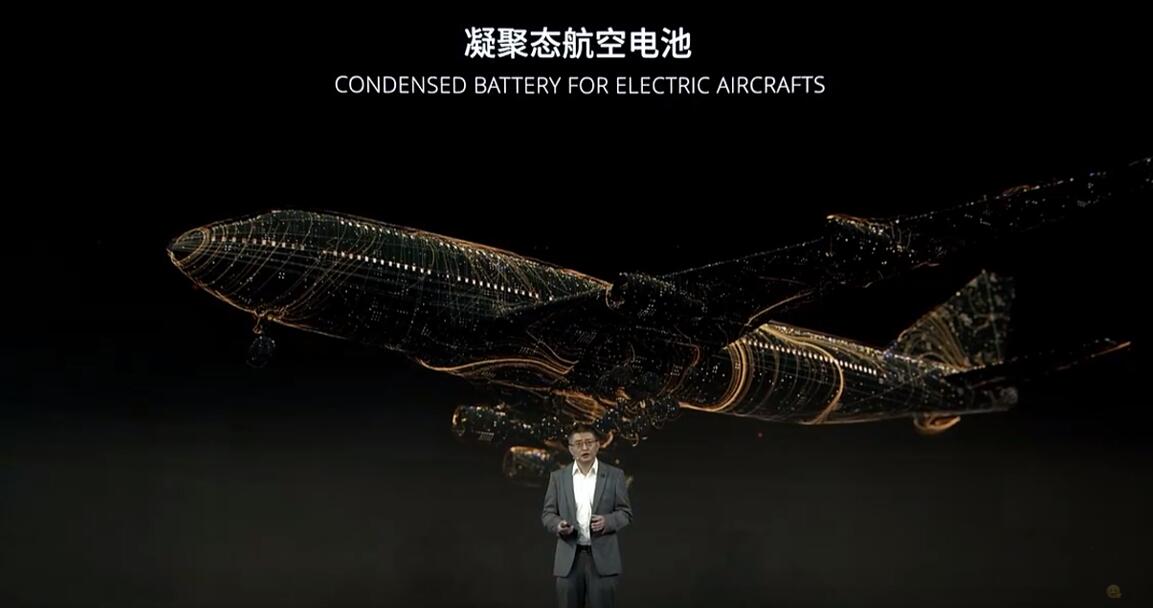CATL is collaborating on the development of Condensed Battery for civilian electric aircrafts, and the battery for EVs will have mass production capability this year.

(Image credit: CnEVPost)
Chinese power battery giant CATL has unveiled its new battery technology, Condensed Battery, which is expected to be used in electric aircrafts and drive faster change in the electric vehicle industry.
CATL's Condensed Battery will feature high safety and high energy density, with single cells having an energy density of up to 500 Wh/kg, the company's chief scientist Wu Kai said today at the Shanghai auto show.

CATL has built a micron-scale adaptive mesh structure that regulates inter-chain interaction forces for changes in the electrochemical reactions of ultra-high energy density chemistries, according to Wu.
The battery also introduces a series of innovations in isolation films as well as innovative processes, including a high-energy cathode and a new type of anode, he said.

CATL is currently working on a collaborative development of a civilian electric aircraft project and is implementing aerospace-grade standards in the process to meet aerospace-grade safety and quality requirements, he said.
The Condensed Battery will also be available for use in electric vehicles and will have mass production capability within this year, Wu said.

CATL initially said at the Chongqing auto show in late June last year that the company was developing Condensed Battery, in addition to solid-state and semi-solid-state batteries.
On August 28, 2022, Wu said at a new energy vehicle industry conference that Condensed Battery has features including high safety, high reliability, and good cycle life.
As some background, 500 Wh/kg energy density is the highest we've seen to date for any power cell claimed to be able to be mass-produced.
Current mainstream lithium-ion battery cells have energy densities of just over 200 Wh/kg, and Nio's (NYSE: NIO) 150 kWh semi-solid-state battery, which is expected to be available in a few months, is 360 Wh/kg.
Higher energy density means greater R&D challenges and thus higher costs.
Nio's 150-kWh pack costs about as much as an ET5 sedan, the company's co-founder and president Qin Lihong said on February 11 at a face-to-face user event in Changzhou, Jiangsu province.
Chery to be 1st automaker to adopt CATL's sodium-ion batteries



